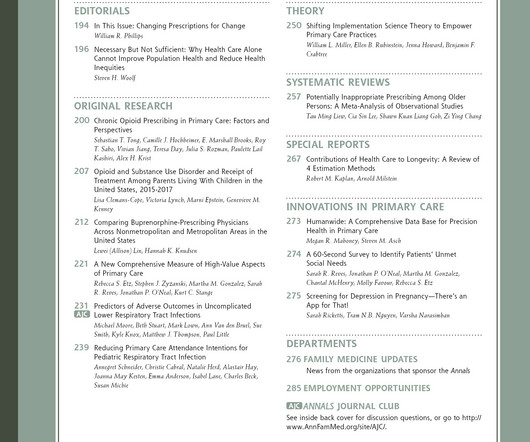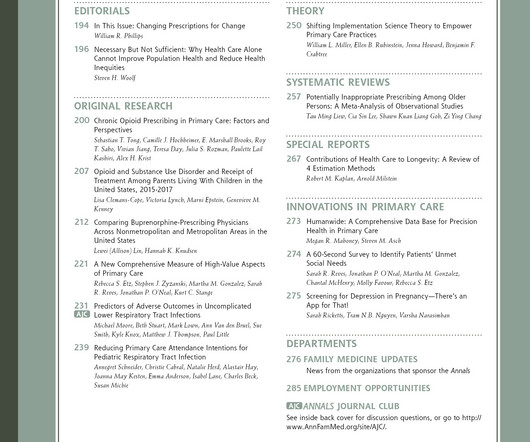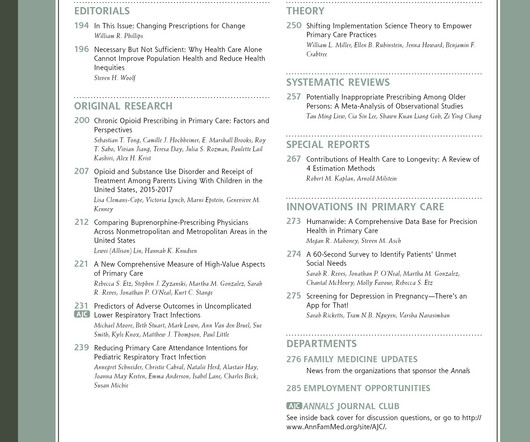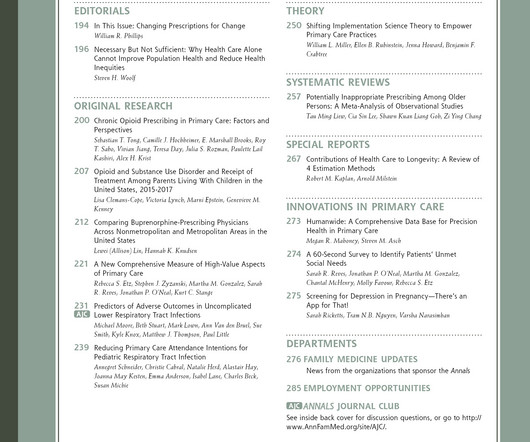Pilot Testing of the Treatment Burden Screening in Diabetes Tool in Primary Care [Multimorbidity]
Annals of Family Medicine
NOVEMBER 20, 2024
Context: Nearly all patients with type 2 diabetes have comorbid chronic conditions, adding complexity to self-management. The 13 clinician participants felt comfortable discussing topics (92%), felt the TBSD revealed new information (44%), focused patient conversations (44%), and uncovered issues that don’t typically arise (32%).






















Let's personalize your content